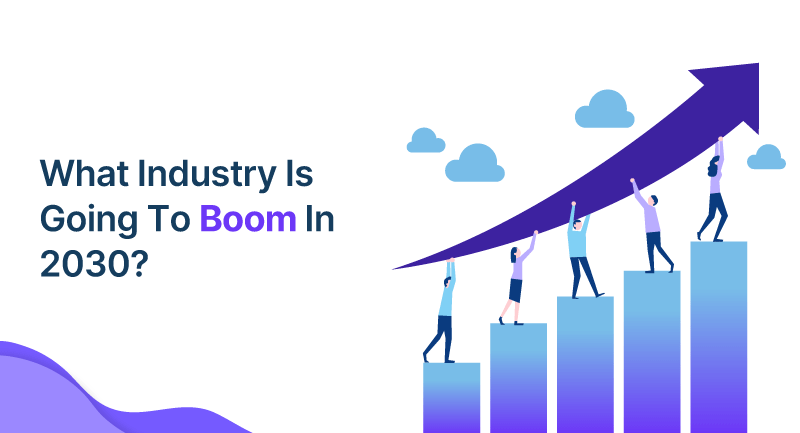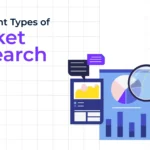What Industry is Going to Boom In 2030?
The next decade will be defined by technology, energy transition, and new business models. Pick the right sectors and you capture durable growth and rising margins. Below are the emerging industries most likely to lead to 2030, each one shown with the key growth figures and why it matters to investors, builders, and jobseekers. If you want the short answer to What industries are growing in the next 5 years? look for where AI, electrification, finance, and platform software intersect with infrastructure and regulation. These are the fastest growing industries 2030 and the industries of the future. That will define the fastest growing industries next decade.
| Sector | U.S. Market Size (2030) | CAGR (2024–2030) | Employment/Investment Highlights |
| Artificial Intelligence (AI) | $851.46B | 19.33% | U.S. funded 1,143 AI companies in 2024; global AI investment to hit $200B by 2025 |
| Renewable Energy & Clean Tech | $373.4B | 15.4% | 790 GW installed capacity by 2030; 1 TW of solar/wind by 2035 |
| Healthtech & Biotech | $699B (biotech) | 12.42% | U.S. biotech employs 428K; 35.6% of global market share |
| Cybersecurity | $136.82B | 8.09% | U.S. leads global revenue; average spend per employee $496 |
| B2B Enterprise Software & SaaS | $1.3T | 26.91% | North America holds 33.3% share; CRM leads with 29.6% |
| IT Services, Cloud & Infrastructure | $691.57B | 7.10% | Managed services lead; federal cloud incentives drive growth |
| Blockchain, Tokenization & DLT | $925.84B (global DLT) | 44% | U.S. tokenization market to reach $4.03B by 2030 |
| Advanced Manufacturing & Robotics | $185.37B (global robotics) | 20.28% | U.S. robotics market $2.17B; EVs drive automation |
| Fintech & Embedded Finance | $520B (U.S. fintech) | 17% | Embedded finance CAGR 32%; digital wallets used by 64% of Americans |
| Consumer Durables & D2C E-Commerce | $2.02T (global) | 6.3% | U.S. D2C market near $200B in 2024; e-commerce CAGR 15.3% |
Artificial Intelligence (AI)
AI is the engine powering the industries with highest growth in ai-driven automation by 2030. The U.S. AI market is forecast near $851.5B by 2030 with a 19.3% CAGR AI is the engine. The U.S. AI market is forecast near $851.5B by 2030 with a 19.3% CAGR (2024 to 2030). Venture activity remains heavy, with 1,143 U.S. AI companies funded in 2024, and global AI investment is expected to hit roughly $200B by 2025. AI multiplies productivity across software, health, finance, and manufacturing. Invest in platform layers, verticalized AI products, and tooling that turns models into repeatable revenue. For those seeking the best stocks for next 10 years, AI-focused companies with proven revenue models and platform economics present compelling opportunities.
Renewable Energy & Clean Tech
Clean power is moving from policy promise to capital deployment. The sector’s U.S. market projects around $373.4B with a 15.4% CAGR to 2030. Capacity targets include roughly 790 GW installed by 2030, moving toward 1 TW of solar and wind by 2035. This underlines that the sector represents infrastructure-scale demand among future growth industries 2030. Opportunities cluster in grid-scale storage, distributed generation, permitting and interconnection, and long-duration storage that makes renewables firm and investable.
Healthtech & Biotech
Biotech and healthtech combine scale and defensibility. Biotech’s market sits near $699B, growing at about 12.4% CAGR. The U.S. biotech sector employs roughly 428,000 people and holds a large share of global activity. Growth drivers include precision medicine, AI-driven drug discovery, telehealth, and digital diagnostics. These segments convert clinical value into subscription or pay-per-outcome models, which are attractive for investors who value recurring revenue plus regulatory moats.
Cybersecurity
Security is non-negotiable as workloads shift to cloud and edge. Cybersecurity markets are expected to reach around $136.8B by 2030 with a roughly 8.1% CAGR. Organizations now spend meaningfully per head, with average security spend per employee near $496. Recurring contracts for detection, identity, and response create predictable revenue. The sector’s stickiness and mission-critical status make it a defensive growth play among emerging industries 2030.
B2B Enterprise Software & SaaS
Enterprise software scales. The B2B software market is forecast near $1.3T with a 26.9% CAGR in the period measured. North America holds a third of the market, and CRM remains a leader with about 29.6% share within its segment. SaaS companies offer high gross margins, ARR visibility, and easy monetization paths for AI augmentation and vertical specialization. This is the classic mix that makes SaaS one of the best industries to invest in and positions it strongly among future growth industries 2030.
IT Services, Cloud & Data Infrastructure
These firms are the plumbing for digital growth. The IT services and cloud market projects around $691.6B, with a CAGR of approximately 7.1%. Managed services and cloud migration work will remain in heavy demand as enterprises adopt hybrid cloud, 5G, and AI. For investors, specialized integrators and managed-platform providers offer lower-risk exposure to the tech-led transformation of large enterprises. This sector forms the backbone of the industries with highest growth in ai-driven automation by 2030.
Blockchain, Tokenization & Distributed Ledger Tech (DLT)
Beyond crypto volatility, enterprise DLT sees enormous upside. Global DLT markets are forecast around $925.8B, with high reported growth rates near 44% CAGR in some projections. U.S. tokenization markets are expected to scale, reaching roughly $4.03B by 2030. Use cases such as trade settlement, provenance, digital assets, and programmable contracts point to platform-level winners that enable new business models and asset classes.
Advanced Manufacturing, Robotics & Electric Transport
Robotics and advanced manufacturing are accelerating with reshoring and EV scale-up. Global robotics markets sit near $185.4B with a 20.3% CAGR, and U.S. robotics adoption is rising as EV production and automation demands grow. These sectors create durable machinery, software, and component markets, including controllers, sensors, battery systems, and factory orchestration software.
Fintech & Embedded Finance
Fintech remains high-growth and structural. U.S. fintech is a large sector, roughly $520B, with a 17% CAGR, while embedded finance segments expand even faster, with a CAGR of approximately 32%. Digital wallets are mainstream, with about 64% of Americans using them. Embedded payments, BNPL-like services, and credit-as-a-service are attractive for platforms driving retention and monetization.
Consumer Durables, D2C & E-Commerce
Consumer durables tied to energy and connectivity—EVs, home energy systems, smart appliances—are growing, while global e-commerce and D2C continue to scale ($2.02T global market, 6.3% CAGR, and U.S. D2C near $200B in 2024). The investor angle is obvious: favor durables that fold into services, recurring revenue, and energy or software ecosystems.
Conclusion
The fastest growing industries to 2030 share three traits: large addressable markets, tech-driven productivity gains, and structural demand backed by regulation or infrastructure spending. If you’re asking What industries are growing in the next 5 years?, map AI and digital platforms into sectors that require heavy capital or regulatory navigation—energy, health, finance, and infrastructure. Those intersections are where the top industries for the future and the best industries to invest in will emerge. Look for companies that combine defensible IP, recurring economics, and the ability to scale across geographies. That’s how you find true winners in the industries of the future and identify the best stocks for next 10 years that will deliver sustained returns.




